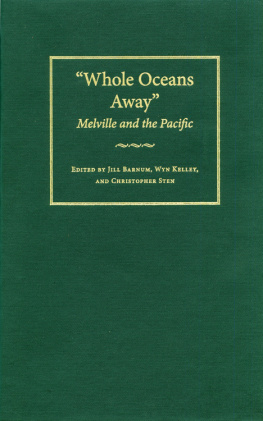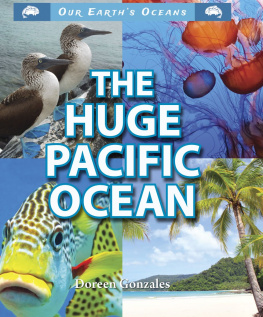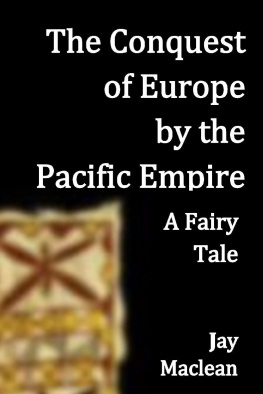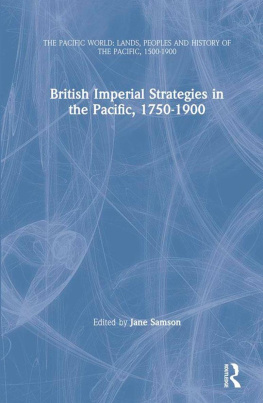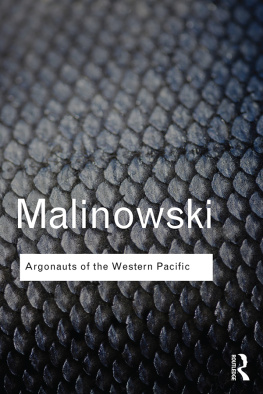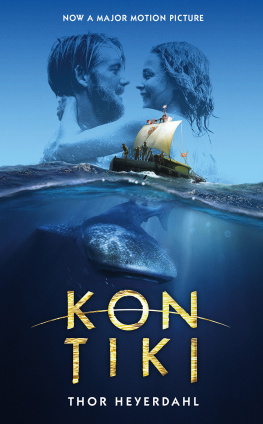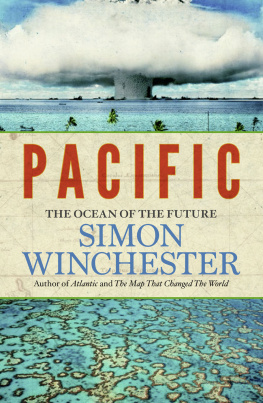WHOLE
OCEANS
AWAY
MELVILLE AND THE PACIFIC
Edited by
JillBarnum,
Wyn Kelley, and
Christopher Sten
THE KENT STATE UNIVERSITY PRESS
KENT, OHIO
2007 by The Kent State University Press, Kent, Ohio 44242
ALL RIGHTS RESERVED
Library of Congress Catalog Card Number 2006038551
ISBN 978-0-87338-893-1
Manufactured in the United States of America
11 10 09 08 07 5 4 3 2 1
Library of Congress Cataloging-in-Publication Data
Whole oceans away: Melville and the Pacific / edited by Jill Barnum, Wyn Kelley, and Christopher Sten.
p. cm.
Based on papers presented at the Fourth International Melville Society Conference held in Lahaina, Maui, Hawaii on June 37, 2003.
Includes bibliographical references (p. ) and index.
ISBN-13: 978-0-87338-893-1 (alk. paper)
ISBN-10: 0-87338-893-3 (alk. paper)
1. Melville, Herman, 18191891Criticism and interpretation.
2. Melville, Herman, 18191891TravelOceania.
3. Authors, American19th centuryBiography.
4. Sea stories, AmericanHistory and criticism.
5. OceaniaDescription and travel. 6. OceaniaIn literature.
I. Barnum, Jill, date. II. Kelley, Wyn. III. Sten, Christopher, date. IV. Melville Society.
PS2387.W48 2007
813.3dc22
2006038551
British Library Cataloging-in-Publication data are available
To the memory of Bryan Short (19422003)
valued Melville Society colleague and treasurer, eminent scholar, beloved friend.

YES, THE WORLDS A SHIP ON ITS PASSAGE OUT,
AND NOT A VOYAGE COMPLETE.
Moby-Dick
Working together on this project has proved an experience of great joy and great and unexpected sorrow. On October 3, 2006, just as this collection was going through the copyediting stage, our coeditor and friend Jill Barnum died after a long struggle with cancer. Jill was the organizer and driving force behind this project; she inspired, not just the two of us, her coeditors, but all of our contributors as well, by her example, her friendship, her shining presence. Like the two of us, Jill had wanted and expected to dedicate this volume to our former colleague and good friend, Bryan Short, who died late in 2003, just months after the Melville Conference in Lahaina, Hawaii, that provided the impetus for this collection of essays. It is our wish, now, to dedicate this volume as well to Jill Barnum, editor extraordinaire, friend without parallel.
Wyn Kelley and Christopher Sten
Contents

LAUNCHING upon the deep of this volume, with its unshored, harborless immensities, would not have been possible without contributions from multiple sources. Our academic institutions head the list. At the General College, University of Minnesota, this project spanned the service of two deans, David Taylor and Terry Collins, and two Academic Affairs directors, Terry Collins and Dan Detzner, who generously provided a graduate research assistant, travel funding, secretarial assistance, and mailing. Our graduate research assistant Jill Flynn was indispensable in filing, assembling, editing, typing, and helping us brainstorm various stages of the project. The Literature Section of MIT and the Department of English and the Deans Office, Columbian College of Arts and Sciences at George Washington University, provided invaluable support for travel, permissions, supplies, and mailing. We were gratified by the enthusiastic acceptance of our book proposal by Joanna Hildebrand Craig, Editor-in-Chief at the Kent State University Press. She and her staff were quick to respond to every query and guided us expertly throughout the process.
We owe the birth of the project to Charlene Avallone and Carolyn Karcher, co-chairs of the fourth International Melville Society Conference, Melville and the Pacific, in Lahaina, Maui, where each of these essays first came to light. To Chip Hughes, mahalo for your support, cheer, and friendship. Pawel Jedrzejko and Timothy Marr helped us strategize the project in important ways in Lahaina. Jan Sten and Bryan Short worked on the spot to pull the conference papers together and to conceive of them collectively. Beyond Mauis shores, our Melville Society colleagues and friends Mary K. Bercaw Edwards, Elizabeth Schultz, and Robert K. Wallace provided inspiration, insight, and support in equal measure as we conceptualized the volume. Robert Del Tredici graciously allowed us to use his lambent artwork in the volume; he also took our group portrait for the dust jacket. From first to last, the emblazoned fraternity among the three editors made possible the energy, excitement, and joy that marked the entire enterprise.
Topmost thanks to our contributors, whose essays are the muscle and sinews of this volume. Warm appreciation to John Bryant and Charlene Avallone, who gave us important and timely advice along the way.
To our families and familiars, thank you for bathing us in eternal mildness of joy and for being our solid crescentic centre at all times: Benjamin and Nicholas Gidmark, Bob Del Tredici; Britt, Bayne, and Dale Peterson; Caroline, Elizabeth, and Jan Sten.

Kahako (also known as mekona or macron): horizontal line over vowel (); indicates that the vowel sound is to be elongated.
okina: inverted apostrophe before vowel (); indicates a glottal stop or break in breath.
Note: The spellings of certain wordsHawaii / Hawaii, Nuku Hiva / Nukuhiva, Taipi / Typeevary from chapter to chapter according to the authors preferences and sources.


IN the world that in Moby-Dick Melville located whole oceans away (The Symphony), Captain James Cook (17281779) arrived at Hawaii in 1778, giving it a new namethe Sandwich Islandsand making his own name famous and infamous when he died there shortly thereafter in a violent conflict with islanders. More than sixty years later, after signing on a whaling vessel, the Acushnet, in 1841, Melville jumped ship in the Marquesas and lived among the Taipi for a month in 1842; he then signed on the Lucy Ann, mutinied in Tahiti, and was put ashore for incarceration, from which he escaped and embarked on a period of beachcombing; joining the Charles and Henry, he sailed to Hawaii, where he worked at different jobs until August 1843, when he enlisted in the United States Navy and sailed home on the United States, arriving in October of 1844.
As Charlene Avallone reminds us in her essay in this volume, Melville spent the longest portion of his Pacific travels in Hawaii. Although no single novel grew out of his Hawaiian sojourn, as Typee emerged from the Marquesas, Omoo from Tahiti, and Mardi and Moby-Dick from Pacific whaling, traces appear in a number of his works, especially his passionate plea for the welfare of Hawaiian islanders in his lecture on the South Seas. The figure of Captain Cook too remains as a visible trace of themes that gripped Melville throughout his career: European exploration, colonialism, and violence, legends of islanders savagery and cannibalism, missionary and military incursions on innocent soil. In

